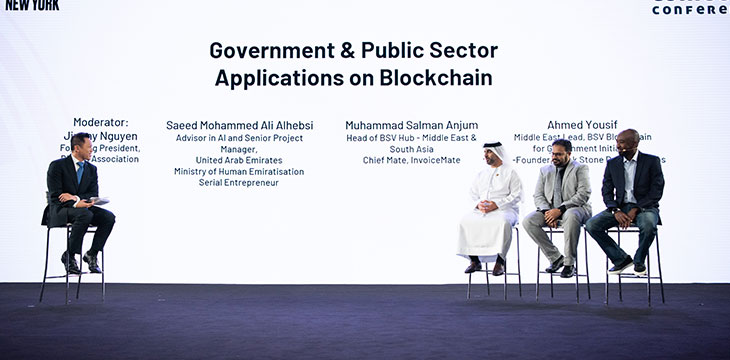|
Getting your Trinity Audio player ready...
|
The era of blockchain technology being relegated to financial uses only is long behind us. The technology is now being applied in several sectors, from supply chain management to healthcare, social media to digital advertising. On Day 3 at CoinGeek New York, a panel of four experts took the stage to discuss the use of blockchain in government and the public sector and why Bitcoin SV is best suited to lead this new field.
Jimmy Nguyen, Founding President of Bitcoin Association, moderated the panel, which featured Mohamed Jega, the co-founder of Domineum Blockchain Solutions; Saeed Mohammed Alhebsi, the senior project manager at the UAE Ministry of HR and Emiratisation; Muhammad Salman Anjum, the head of InvoiceMate and leader of the BSV Hub; and Ahmed Yousif, the Middle East lead for the BSV Blockchain for Government Initiative.
The Middle East has become the region to watch in the blockchain for governance field, and this was reflected in the panel, with three of the panelists coming from the region. They shared their insights on why the region is leading the charge, what the rest of the world can learn and why Bitcoin SV is seeing such high traction in the region.
Now is the time for blockchain-powered governance
Middle Eastern countries like Saudi Arabia and the United Arab Emirates have pioneered blockchain use in governance. Ahmed, who is playing a central role in this field, offered an insight on why the region is taking the lead.
He told the attendees, “Middle Eastern governments are considered younger and easier to adapt, and blockchain is showing a lot of promise.” The region also has a more streamlined top-to-bottom government and as such, once the decision to adopt blockchain is made at the top, all the other agencies below it are quick to follow.
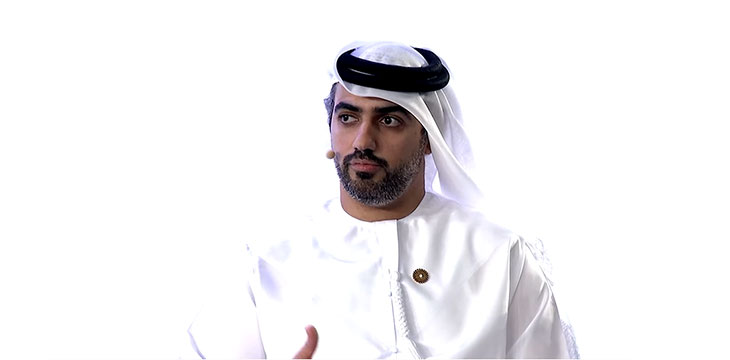
“Blockchain is a technology the government is taking very seriously,” Saeed offered more insight. The AI expert, whose Ministry is in charge of finding innovative ways to offer employment to the citizens, added, “We have very clear vision from the leaders, [and a] very clear strategy from the government.”
In Dubai, the city is already looking to become the first in the world to become fully powered by blockchain technology, Saeed added.
With any technology, there are three stages towards full-on adoption – the first where the developers work to introduce it to the world, the second in which enterprises and the wider masses come onboard, and the third where the government steps in and regulates it, giving it credibility.
However, with blockchain in the Middle East, all these have converged into one, Ahmed noted. The government has come into the industry at a time when it’s in its infancy and is giving the technology much-needed credibility. In Saudi Arabia for instance, the country’s central bank is using blockchain for transactions and reconciliation, he observed.
“It’s very interesting to see that the Middle East is taking the lead when it comes to this technology,” Ahmed stated.
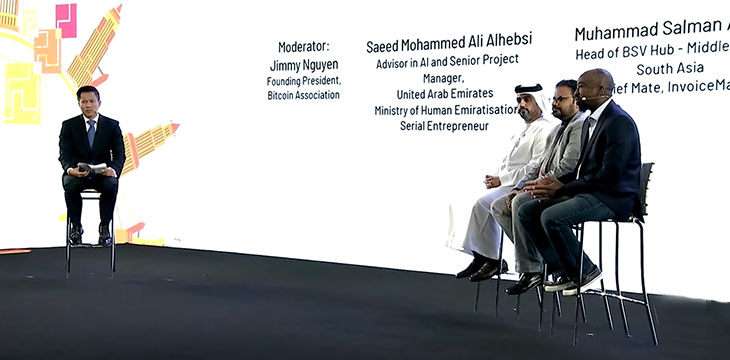
Bitcoin SV for governance
As with many other sectors, such as peer-to-peer payments and supply chain management, Bitcoin SV is establishing a head start in governance and the public sector.
Muhammad Salman is playing a critical role in the rise of Bitcoin SV for governance in the Middle East as the head of the BSV Hub. He has been working with the UAE Ministry for Emiratisation and the partnership has been very successful, he revealed.
Aside from enhancing data security and integrity, the UAE government has been looking to BSV for workflow automation. The government is integrating smart contracts on BSV for contracts with its contractors and employees.
In Saudi Arabia, the government is exploring blockchain technology beyond finance, Ahmed told the conference. Identity management is one of the most important use cases for the Saudi government, especially in an era where online record keeping, including vaccination and health records, has become critical.
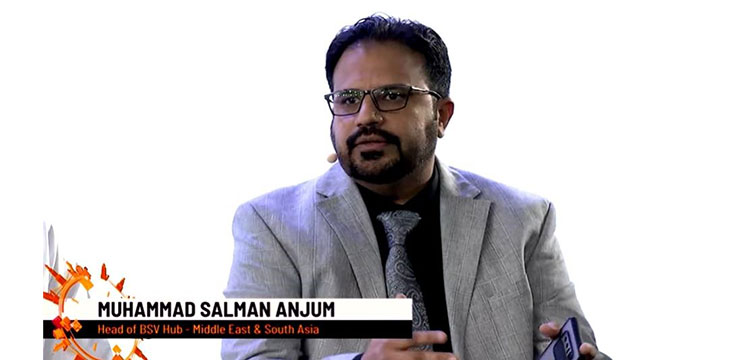
The BSV contingent in the Middle East has done a great job in creating awareness of the viability of blockchain technology for governance. Be it through one-on-one meetings with government officials, seminars and conferences or online blockchain courses, Bitcoin SV is becoming ever more popular in the region, the panelists revealed.
And as with many other technologies, blockchain will gain greatly from a network effect, Salman observed. For Bitcoin SV, this will be especially critical as other governments will be able to observe its success in the UAE and Saudi governments.
Salman stated, “Now with recent success with the Ministry [of Emiratisation] and others, we will now have tangible references, and that to me is key. This is what we will now be using to create the ripple effect, and in the next few years, we anticipate a lot of success stories from the BSV ecosystem.”
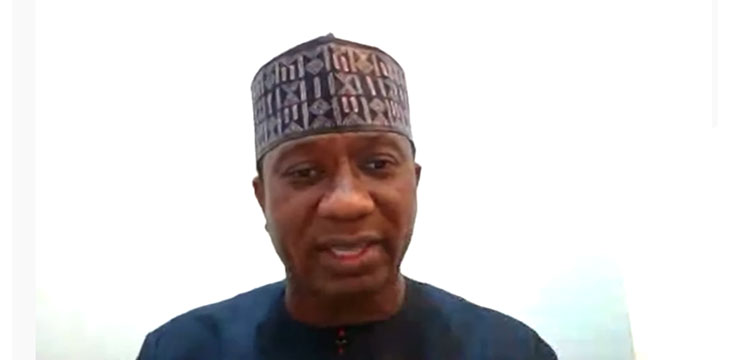
The panelists called for more partnerships in the Bitcoin SV ecosystem geared towards government adoption. Domineum has already begun exploring possible avenues for collaboration with the Middle Eastern BSV firms which are finding great success in the region. The company has been pioneering the use of BSV in governance and supply chain management in Africa, and Jega is confident that most of the solutions BSV is availing in the Middle East can be applied to the African market.
Watch CoinGeek New York 2021 Day 3 here:

 02-28-2026
02-28-2026 
